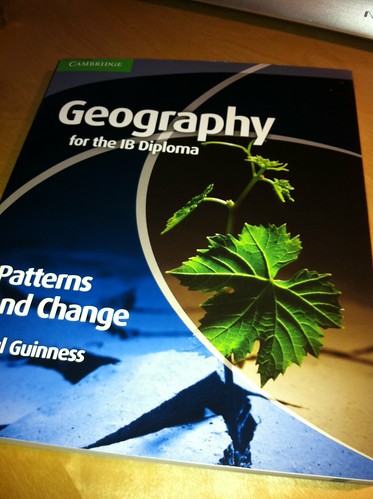What is an IB teacher?
The International Baccalaureate (IB) was first introduced as a Diploma for 16-19 year olds in 1968. It is now offered to help schools, governments and international organisations all over the world to develop challenging programmes of international education and rigorous assessment from the ages of 3 to 19. What is it that sets the IB apart and how can you become an IB teacher?
IB schools
A common misconception is that IB schools only exist for exceptionally gifted students attending private schools. This is far from the case. IB programmes are firmly based on equal opportunity for all students, regardless of gender, culture or background, and carry rigorous provision for special educational needs.
What is unique about IB schools is that they have bought into the philosophy and aims of the IB programme. They are committed to involving students in the process of their own education through active learning and to encouraging creative professionalism in teachers through their involvement in curriculum reviews.
IB is a growing force in the provision of educational programmes of study and in shaping how educators understand their role in today’s society. Currently 3,510 schools in 144 countries offer the IB curriculum to approximately 1,072,000 students. More than 50% of those studying the IB are based in state schools.

Photo courtesy of flickr creative commons: flickr.com/photos/geographyalltheway_photos/5085380279/
The IB ethos
The IB approach is unashamedly international in its outlook but this does not mean that it is only taught in international schools. This outlook simply informs its teaching, assessment and approach and is expected to inform the schools and teachers who deliver its courses.
The IB aims to develop inquiring, knowledgeable and caring young people who help to create a better and more peaceful world through intercultural understanding and respect. It aims to produce lifelong, active learners who understand that other people, with their differences, can also be right.

Photo courtesy of flickr creative commons: flickr.com/photos/togawanderings/7261358162/
Becoming an IB teacher
IB teachers are not just known for their work across disciplines and their innovative approaches to getting students involved in learning. They are also known for their involvement in decisions relating to the curriculum they teach: the IB encourages schools to be involved in the development as well as the delivery of its programmes.
Those interested in becoming an IB teacher should be aware that although there are no centrally set formal qualifications needed to teach IB programmes, many individual schools have a specific recruitment policy. It is usually necessary to demonstrate a firm understanding of the aims of the IB and to show evidence of your ability to deliver its programmes.
To this end there are face-to-face workshops held by the IB, online workshops hosted on the IB website and teacher training programmes known as the IB Educator Certificates which can help teachers to demonstrate their capability to teach in an IB World School.
What is an IB teacher?
On a simple level an IB teacher is someone who teaches the IB programmes of study. On a slightly deeper level, an IB teacher is someone who follows a highly respected, unique curriculum and has become trained specifically in the delivery of IB course materials.
An IB teacher in the final analysis is someone who has bought into the international outlook of the organisation and its World Schools. They work hard to involve students in their own learning and to become involved in the development of the programmes that are being taught. They are creative professionals.





















